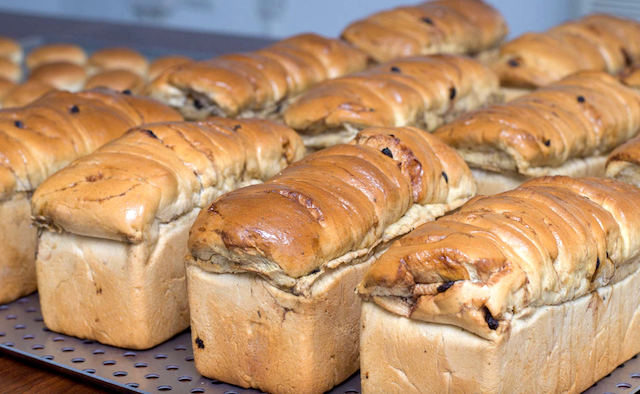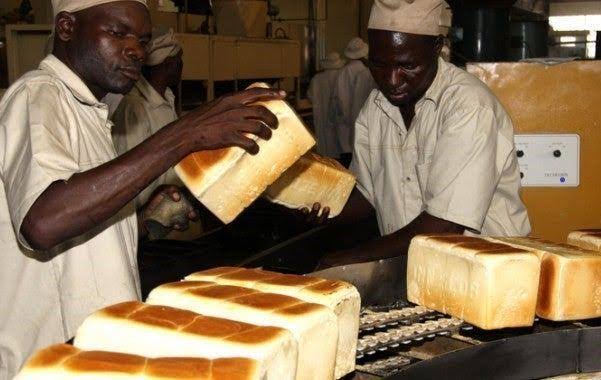A syndicate allegedly supplying drugs, bread and other food items to bandits operating in Zaria, Kaduna State and its environs has been smashed by operatives of the FIB Intelligence Response Team (FIB-IRT).
An alleged member of the syndicate, who admitted to making about N150,000 weekly from supplying bread to the bandits, said his income from the venture rose sharply at a point to N70,000 a day while some university students abducted in Kaduna were in their custody.
A police source, who said the suspects would be charged with criminal conspiracy and kidnapping, revealed that the syndicate was busted by the team of FIB-IRT at the Rigachikun base after supplying bread to the bandits in their hideout in the forest at about 5pm on June 8, based on reliable information.
Among the arrested suspects were Abubakar Ibrahim a.k.a Abu Rewire of Kuregu village in Wasasa Zaria; Auwal Abubakar of Zaria City; Hassan Magaji of Galadimawa village and Ibrahim Kabiru a.k.a. Abba of Galadimawa village.
On interrogation, the suspects confessed to being the ones supplying bread to the bandits at Galadimawa, Damari, Kidandan and Awala camps in Birnin Gwari and Giwa local government areas, Kaduna State.
The suspects were said to have led the detectives to their factory where 150 loaves of bread were recovered.
In his confessional statement, Auwal Abubakar, was said to have admitted that the syndicate was giving information to bandits on account of which they carried out kidnapping and cattle rustling in the Zaria axis.
Hassan, a native of Galadimawa village who is married with two wives and three children, said: “I started the bakery business in 2018. Before then, I was an okada (commercial motorcycle) rider, but I was always losing them to bandits who sometimes ambushed us.
“Some time ago, one of my relatives, Mustafa Magaji, came to our area and taught me how to operate a bakery, and with the little money I had saved, I started the business.
“I started with about N21,000 and now make about N400,000 a month. The boom in my business began when I started supplying bread to bandits.
“I was born and brought up here in Galadimawa, and I know most of our young men who decided to become bandits.
“Initially I was going around the area to sell bread in small quantities. That was when I met one Mohammed from Galadimawa.
“The community has a good relationship with them because they do not attack us. Initially, they were raiding our villages, but some of our community heads made them understand that we were not the cause of their problem; that we are poor villagers also struggling to survive. That was why they stopped attacking us and most of them started coming out to mix with the villagers.
“I normally stay close to the part of the forest where they are camped. It was during one of such movement in 2019 that I met Mohammed and he bought 10 loaves of bread and took my phone number. I sold the bread for N200 each instead of the regular market price, which was N170. The next day, he called me, saying that the bread was so sweet and asked me to bring 20 more loaves.
“The day I took the 20 loaves to him, I saw him with three others and they told me that they would like to be buying in larger quantities, but I told them that I did not have enough cash. We agreed that they would pay the entire money before I bake.
“They started with N20,000 worth of bread and gradually increased it to N50,000 a day. After removing the cost of the ingredients, I make as much as N150,000 in a week.
“We had a meeting point close to their hideout in the forest, but I was not allowed to enter the bush. It is not even accessible by car, so I had to stop there and share the bread to those that contributed money.
“They never threatened me because I minded my business. They know that people are avoiding them; that was why they normally encouraged me by paying for the bread before I baked it. So, I do not know about their kidnap business; I only sell my bread and leave.
“It was my workers that were arrested by the police while they were on their way to delivering bread, and they brought them to my factory.”
Hassan said he observed that whenever the bandits kidnapped a lot of people like they did some university students in Kaduna, the quantity of bread they bought would increase.
“During that period, I supplied up to N70,000 worth of bread every day till recently when it dropped to about N50,000,” he said.
Since December last year, armed men have attacked many schools and universities in the Northwest, abducting more than 700 students. Among those abducted were about 20 students of Greenfield University in Kaduna kidnapped on April 20, about one month after attackers stormed a forestry college in the same city, seizing dozens of students.
The abducted students of the university spent as many as 40 days before they were released after their parents had paid heavy sums as ransoms.
Hassan, however, said there was not much he had done with the money other than marrying a woman “I had always loved. And I was able to save money to take care of my two wives.”
Another suspect, Abubakar from Galadimawa, said: “I am married with a daughter. I only attended Arabic school. I am a farmer, and while we are waiting for the crops to grow, I normally look for other sources of making money for my family.
“I started working for Magaji about three months ago. I am paid N500 and a loaf of bread every day. My job is to join and bake the bread and also sell them in the various communities.
“Most of our bread was sold to bandits. I know that they are bandits. Everyone knows them. I did not fear that they would kidnap me because we minded our business.
“They don’t cover their faces. We know their villages. The only thing is that they now live in the forest.
“They have no families. It is only some of their commanders that are married with children.
“I do not know that it is a crime to sell. I am only selling my wares and nothing more. I am aware that they are kidnapping people up and down, but since I did not participate in it, I never cared to know whether what they were doing was right or not.
“There was never any need for me to worry. It was at the police station that they told me that I was encouraging them by giving them food.”
He said the only way to stop banditry was for the government to give them what they want. “They are so many in the bush, and the more you kill them, the more they recruit.
“I did not join them because of my family. My relatives had warned me that one day, the army would bomb the place and I would die.”
The third suspect, Ibrahim, a 17-year-old indigene of Galadimawa, said: “I dropped out of Galadimawa Primary School. My parents are farmers and they made me join them in the farm instead of sending me to school.
“I have been saving money to buy a motorcycle to start a commercial motorcycle business, but I could not save enough money. Luckily, I got a job at Magaji local bakery about a year ago.
“I am paid N500 and a loaf of bread daily. Sometimes I would sell the bread instead of eating it.
“Part of my job is to sell it in the neighbouring communities every day. The bandits are our best customers. Instead of trekking around and begging people to buy bread, we just deliver everything to them and go home.
“I am not a bandit because if I try it, my father will hunt me down and hand me over to the police. He has warned me that those bandits kill innocent people, which is wrong.
“I know a lot of them who have since relocated into the forest. They only come out when they have money; to look for girls and visit their families.”





